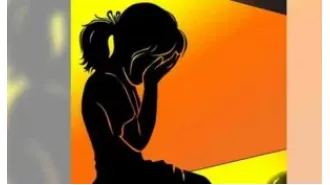"MPs are voting on changes to the 2024 winter fuel payment initiated by Keir Starmer."
Parliament to vote on Starmer and Reeves' proposal to reduce pensioners' winter fuel payments amidst growing backlash.

The new prime minister, Keir Starmer, is facing one of his biggest challenges yet. His government has received criticism after a recent vote by MPs to cut winter fuel payments for pensioners. The Chancellor, Rachel Reeves, announced that the benefit will no longer be universal and will instead be means-tested, only providing assistance to those who are most in need. This controversial decision has caused rebellion among Labour MPs, including Diane Abbott, the longest-serving female MP, who have expressed their opposition to the plans.
The Winter Fuel Payment, which is meant to help eligible individuals keep warm and pay their heating bills, is in addition to other benefits and cost of living payments. However, Starmer's move to means-test the payment, which can be worth up to £300, is estimated to affect around 10 million pensioners. This has raised concerns that some may end up in the hospital due to the change. Despite these concerns, Labour argues that this measure is necessary to fill a financial "black hole" and save £1.4 billion this year.
So, who is eligible for the Winter Fuel Payment and how can they claim it? Let's take a closer look. The payment is a one-off amount between £200 and £300, depending on the recipient's age. This is determined by their circumstances during the "qualifying week", which falls between September 18 to 24, 2024. Currently, the lower rate of £200 is given to individuals aged between 66 and 79, while the higher rate of £300 is for those over 80.
Winter Fuel Payments were first introduced by the Labour government in 1997 to provide assistance to pensioners during the winter months. At the time, they were only available to those receiving certain benefits. However, in 2000, the payments were expanded to be a universal benefit, meaning everyone received them regardless of their income. This continued until this year when Chancellor Rachel Reeves announced the decision to means-test the benefit. She acknowledged that it was a difficult choice, but necessary due to the difficult circumstances caused by the previous government's actions.
Labour leader Sir Keir Starmer has also expressed his support for cutting winter fuel payments to stabilize public finances. He believes that this is a necessary step in fixing the fundamentals and stabilizing the economy. He also highlighted that inflation, energy bills, and the cost of living have been major concerns for pensioners in recent years, and he is determined to prevent them from facing similar challenges in the future.
However, not everyone agrees with this decision. Former Prime Minister Rishi Sunak has criticized the government for taking away winter fuel payments while approving pay rises for public sector workers. He argued that leadership is about making choices and questioned why the government has chosen to prioritize train drivers over pensioners. Similar criticism has come from both sides of the political spectrum, with trade union leader Sharon Graham urging the government to reconsider their decision, stating that it will hurt pensioners while leaving the rich untouched.
The recent vote on the Conservative motion to strike down the planned cuts to winter fuel payments saw 53 Labour MPs not registering a vote. Ultimately, the motion was defeated with 348 votes against and 228 in favor. Only one Labour MP, Jon Trickett, voted in favor of the motion. In a statement, he expressed his concerns that removing the payment from pensioners could lead to an increase in poverty, which could have severe consequences, even resulting in loss of life. He also mentioned that he had been working behind the scenes to change the government's mind, but unfortunately, his efforts were not successful.
In a recent interview on LBC, John McDonnell, another Labour MP, stated that he remains hopeful that the government will come up with an alternative solution to protect his constituents, who will be greatly affected by this change in policy. However, if no alternative is presented, he cannot, in good conscience, do anything else but vote against it.
The new prime minister, Keir Starmer, has been faced with one of his biggest challenges yet. His government has received harsh criticism after a recent decision to cut winter fuel payments for pensioners. Chancellor Rachel Reeves announced that the benefit would no longer be universal and will now be means tested, meaning only the poorest will receive it. This has caused an uproar among Labour MPs, with the longest-serving female member, Diane Abbott, voicing her opposition.
The Winter Fuel Payment was initially created to assist eligible individuals in paying their heating bills and keeping warm during the winter months. It is in addition to other benefits and cost of living payments. Starmer's move to means test this payment, which can be up to £300, is estimated to affect around 10 million pensioners. This has raised concerns, with warnings that some may even end up in the hospital as a result of the change. However, Labour argues that this decision is necessary to address a financial deficit of £1.4 billion this year alone.
So who is eligible for the Winter Fuel Payment and how can it be claimed? Here's what you need to know. The payment ranges from £200 to £300, depending on the recipient's age and circumstances during the qualifying week of September 18 to 24, 2024. The current payment is £200 for those aged between 66 and 79, and £300 for those over 80.
The Winter Fuel Payment was first introduced by the Labour party in 1997, with the aim of assisting pensioners in covering their heating costs during the winter. Initially, it was only given to those receiving certain benefits, but it was later expanded to be a universal benefit in 2000, meaning everyone received it regardless of their income. However, this year, Rachel Reeves announced that it will now be means tested. She acknowledged that it was a difficult decision, but necessary due to the previous government's actions.
Sir Keir Starmer has expressed his firm belief that the Winter Fuel Payment needs to be cut in order to stabilize the country's public finances. He emphasized the need to fix the underlying issues to bring about positive change. Former Prime Minister Rishi Sunak criticized the government for taking away winter fuel payments while approving public sector pay rises, questioning their priorities.
Criticism has also come from various quarters, with trade union leader Sharon Graham urging the government to rethink their decision. She argued that it will only hurt pensioners and leave the wealthiest unaffected. The recent vote on the Conservative motion to scrap the planned cuts saw 53 Labour MPs not registering their votes. In the end, the motion was defeated with 228 votes in favor and 348 against. Jon Trickett, the MP for Normanton and Hemsworth, was the only Labour member to vote in favor of the motion. He expressed his concern that this change would push more pensioners into poverty and could even be a matter of life and death.
Trickett revealed that he had been working behind the scenes to persuade the government to reconsider, but to no avail. He ultimately voted against the decision, stating that he couldn't, in all conscience, do anything else.
9 Views










